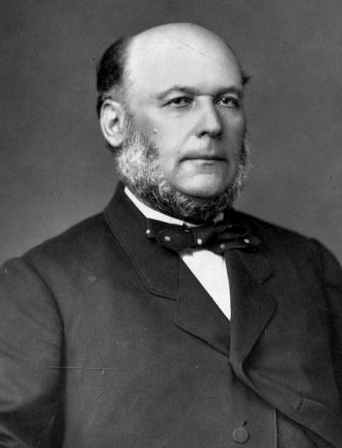
Jules Grévy
30 January 1879 - 2 December 1887
04
Jules Grévy: The Republican Statesman and Third President of France
Jules Grévy was a French statesman who served as the President of the French Republic from 1879 to 1887. He was born on August 15, 1807, in Mont-sous-Vaudrey, France, and died on September 9, 1891, in Mont-sous-Vaudrey.
Grévy was born into a family of lawyers and became a lawyer himself before turning to politics. He was elected to the French National Assembly in 1848 and quickly established himself as a leader of the Republican Party.
Grévy was a firm believer in the principles of liberty, equality, and fraternity, and he worked tirelessly to promote these values throughout his political career. He was a strong advocate for universal suffrage and worked to expand the right to vote to all French citizens.
In 1871, Grévy was elected to the French Senate, where he served as President of the Senate from 1876 to 1879. In 1879, he was elected as the third President of the French Republic, succeeding Patrice de MacMahon.
Grévy’s presidency was marked by a number of significant events and achievements. He worked to strengthen the power of the presidency and to promote stability and prosperity in France. He oversaw the construction of a number of important public works, including the Paris Metro, and he helped to modernize the French economy.
One of the most significant events of Grévy’s presidency was the Panama Canal scandal. The scandal involved the misappropriation of funds during the construction of the Panama Canal, which had been backed by a number of prominent French politicians and businessmen.
Grévy was not directly implicated in the scandal, but his son-in-law was involved and Grévy was criticized for not taking action to prevent the corruption. The scandal ultimately led to Grévy’s resignation in 1887, making him the first French president to be forced from office.
Despite the controversy surrounding his resignation, Grévy is remembered as an important figure in the history of France. He was a staunch defender of Republican values and worked to promote social and economic justice throughout his career.
Legacy
Jules Grévy is remembered as a Republican statesman who played a key role in the history of France. His commitment to the principles of liberty, equality, and fraternity helped to shape the values of the French Republic and to promote social and economic justice.
Grévy’s presidency was marked by significant achievements, including the construction of important public works and the modernization of the French economy. While his presidency was also marked by controversy and political scandal, his commitment to the principles of the Republic remained steadfast.
Grévy’s legacy continues to be studied and celebrated today. He is remembered as an important figure in the history of France, whose contributions to the country’s political and social development continue to be felt.
Conclusion
Jules Grévy was a Republican statesman and the third President of the French Republic. His commitment to the principles of liberty, equality, and fraternity helped to shape the values of the French Republic and to promote social and economic justice.
Grévy’s presidency was marked by significant achievements and important public works, as well as controversy and scandal. Despite these challenges, he remained committed to the principles of the Republic and to the welfare of the French people.
